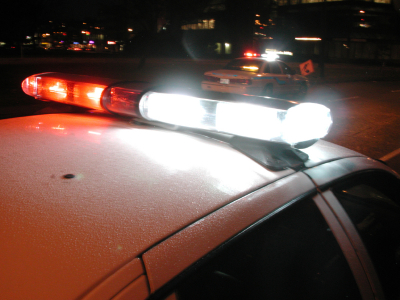
The Illinois Secretary of State releases a publication every year that provides statistics about arrests for driving under the influence. The annual DUI Fact Book says that the number of arrests for drunk driving each year in our state is just under 50,000. To be clear, this is the number of arrests, and so it says nothing as to whether these people are convicted.
In addition, the figure includes both misdemeanor and felony charges for DUI. While the Secretary of State does not provide that specific number, my experience tells me that the ratio of misdemeanor charges compared to felonies is about 4 to 1.
The number of people arrested for DUI in Illinois has been decreasing for the last several years, mostly due to the economic recession. There are two factors at play with regard to the reduced number of drunk driving arrests. First, fewer people are going to bars. When money is in short supply, some people will decide to stay at home. Also, there are fewer police officers patrolling the streets. Governments at the municipal and county level have been reducing their budgets, and officers have been laid off.
One of the most staggering statistics from the DUI Fact Book is that 92 percent of all drivers who are arrested lose their driving privileges. This is a very high number, but we should take a closer look.
There are many factors that explain why 92 percent of all people who are charged with DUI lose their licenses. First, all people, rich and poor, get arrested for DUI. The law provides that a person who does not have the finances to hire an attorney is guaranteed a court appointed lawyer. The court appointed lawyer comes from the public defender. The public defender is provided by the county, but their representation is limited to the criminal case. This is because a defendant is entitled to a court appointed attorney only as to criminal charges. This 6th Amendment to the Constitution guarantees the right to counsel in criminal cases. The statutory summary suspension of a person’s license, however, is considered to be a civil matter. The public defender is not provided as to the summary suspension. Therefore, for a very large number of DUI defendants, no one is challenging the summary suspension.
Due to the recent economic recession, the number of defendants who qualify for the services of the public defender is at an all-time high. Basically, no one has any money to hire a lawyer. Therefore, judges are appointing the public defender in more cases than ever before. As a result, more people are not challenging the summary suspension than ever before.
The sad truth is that the appointment of the public defender can have many unintended consequences. Often, a person who gets a summary suspension believes it is necessary to drive for work or for family. If that person is pulled over driving during the summary suspension, the penalty is 10 days jail and his license will be re-suspended. Unfortunately, one can see many public defender clients in court with repeated charges of driving while license suspended. On each case, that person’s license is re-suspended. The consequence is some of these people can never get out of the criminal justice system. They cannot hold down a job because they have no license, and because they are constantly serving jail sentences for driving while suspended.
In every case, it is critical for the defendant to have a private attorney. While there are many public defenders who are willing and able to defend their clients, the problem is the law does not allow them to defend their clients with regard to the summary suspension. The suspension of driving privileges is equally as important to the misdemeanor charge, in my opinion. In some cases, it is more important.
Look at it this way: a jail sentence for DUI is served and then it is over. But a summary suspension can keep getting extended over and over again.
The 92 percent who lose their driving privileges after a DUI arrest includes those defendants who have their privileges revoked by the Secretary of State for a conviction for driving under the influence. Recall that the law in Illinois says that a person who has a previous supervision for DUI or reckless driving is in eligible for supervision on a subsequent arrest. The minimum sentence for people in this category would be a conviction. A conviction imposed by a court causes the Secretary of State to revoke that person’s license.
The economic recession has made the payment of fines and court costs a problem for people who are not accustomed to financial strain. Many times, a person will fail to pay his fine or court costs and the court will take action against him by revoking supervision. Once supervision is revoked, a conviction must be entered against that person and a revoked license will follow.

